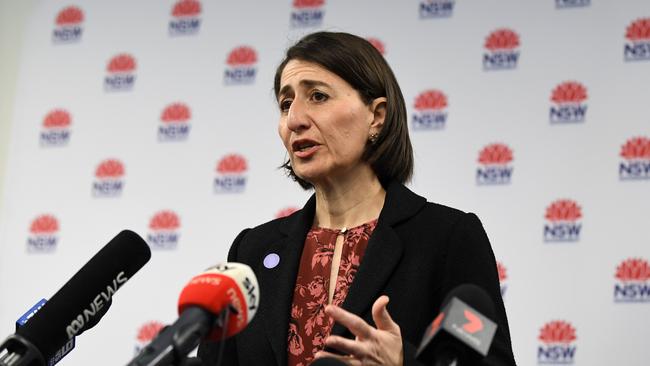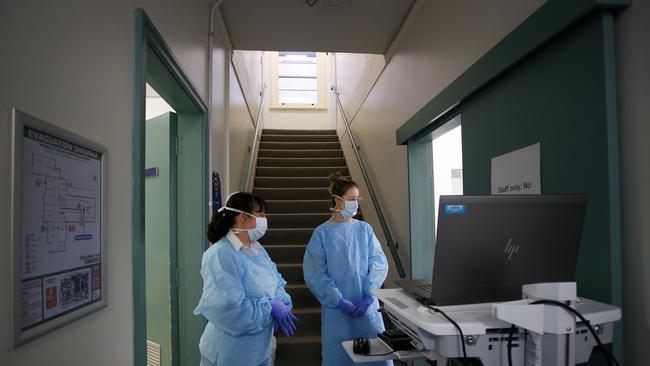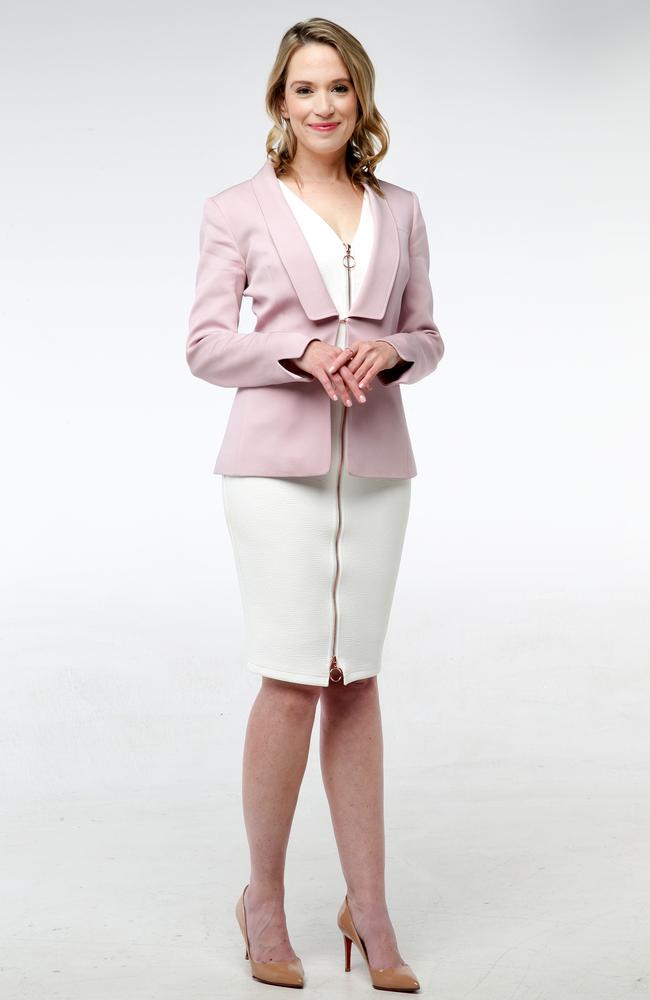Anna Caldwell: No time for shoddy cellophane solutions
Electorate offices may wrap themselves in cellophane to stop COVID-19 but it is the Premier’s gutsy call to freeze public servant salaries that has her feeling a chill, writes Anna Caldwell.
Opinion
Don't miss out on the headlines from Opinion. Followed categories will be added to My News.
- Creating new jobs from $3b public servant pay freeze pain
- Pay freeze for pollies, $1000 NSW lockdown fines begin
An official government circular went to every electorate office in the state on Thursday suggesting they take it upon themselves to pin up some “clear cut-out cellophane” at front counters to protect staff as work returns to normal.
In a truly Yes, Minister moment, the bureaucratic email described the cellophane set-up as an “innovative temporary solution”.
The email also noted the state’s Manly Electorate Office has already taped some up, with a small gap for passing paperwork.
“Electorate Offices Services are currently sourcing a design and permanent solution for a reception counter guard … this may be something you wish to consider and implement until a permanent solution becomes available,” the email said.

No one can accuse them of wasting money but if cellophane and sticky tape has found itself as the official health and safety advice of government, you see why some might worry.
Government never seems to shock us when it comes to mismanagement. But now, more than ever, there is no room for shoddy cellophane solutions.
And I don’t just mean in electorate offices, but more significantly in the metaphorical sense.
As I first reported on the front page of this paper back in April, the government is staring down a $10 billion hit to the budget and Cabinet is closely reconsidering some of Gladys Berejiklian’s biggest infrastructure commitments — the Powerhouse relocation and the ANZ Stadium redevelopment.
Now both of those stories have been confirmed, with government figures saying the budget hit ranges between $10 billion and $20 billion and Berejiklian repeatedly refusing to publicly commit to those big projects.
Things are indeed grim.
But what matters so much more than hits to budgets and savings is the real job losses and the day-to-day economic suffering in society — more than 200,000 people in NSW lost their jobs in April, and there are more job losses to come.

The observation made on Thursday by Reserve Bank governor Philip Lowe that the federal government may need to extend JobKeeper subsidies beyond September is the chilling reminder we need to have.
While it’s tempting to be optimistic about the green shoots we can see with society slowly opening back up, the risk of a longer-term tough economic outlook remains very real.
At the same Senate hearings on Thursday, the Australian Prudential Regulation Authority chairman Wayne Byres raised the spectre of us all “going off the cliff” — that moment after September when loan deferrals expire, JobKeeper ends and the safety nets are taken away.
And yet, amid all of this, NSW is about to have a massive brawl over whether 400,000 public servants in safe jobs should forgo a pay rise for this year.
The decision this week to institute a wage freeze for the state’s public servants is one of the toughest political decisions this state government has had to make.
Everyone knows a cop, a nurse, a teacher — and no premier wants to go to war with them.
It’s just as easy to argue that frontline workers should be getting a pay rise as it is to explain why they can’t have one.
Berejiklian is now fully signed up to this war and it’s going to be ugly, with the government willing to take the fight to the Industrial Relations Commission if upper house negotiations fail — which they look set to.
Outside the public service, hundreds of thousands have already been left without the dignity of work, and others have suffered hefty pay cuts, lost shifts and even been called upon to work for free.
What is being asked of the public sector is something much smaller. They are also being protected from job cuts, a safety net those workers in the private sector do not have.
The advice to government was that pay rises to public servants are more likely to be nervously saved in bank accounts in these uncertain times and therefore have negligible impact on the greater economic good.

The advice was that creating new jobs for people on the unemployment line, in contrast, will have a greater stimulatory effect for the whole of the economy.
This dovetails with the possible sidelining of large projects such as the Powerhouse relocation and ANZ Stadium, which would be replaced with spending on small-scale, fast projects that can get jobs and money out the door quickly.
It’s an argument the government can mount in the current crisis — but the problem faced is the ugly fact that it has already signed off on huge pay rises for its most senior public officers.
Police Commissioner Mick Fuller nobly offered to forgo his own pay rise but the government pushed ahead with it, saying it had been on the to-do list for more than a year.
A swag of department bosses had their pays bumped up to $599,000 under a deal signed off on by the Premier before the pandemic hit.

These realities make it so much harder to look nurses and cops dead in the eye and say no boost for you.
Berejiklian’s own Cabinet fiercely debated the matter at a four-hour Cabinet meeting this week, with some ministers were deeply concerned about the political implications.
There remains a bloc of MPs who want a carve-out for frontline workers.
This was a concept closely considered by Perrottet but in conversations with the unions it became too difficult to draw a line and decide who got pay rises and who didn’t.
These are big, tough decisions and the government must get them right.
If it freezes public sector wages, it must make good on its word and use that money to create other jobs.
Sidelining large-scale projects will only be the right decision if that means more people can be employed faster in small projects.
But if any of these moves are simply cellophane solutions, the government will pay the price.

